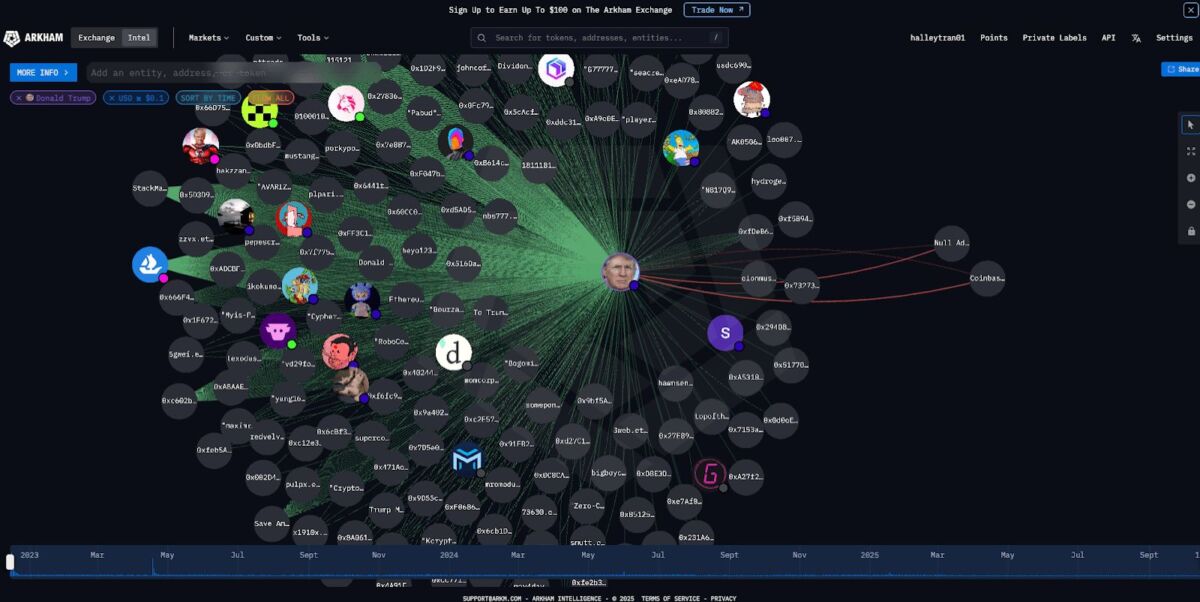
Even in a still quiet market, Zcash continues to maintain steady growth, bringing renewed attention to privacy in crypto. Privacy has always been one of the founding principles of crypto, but it is often overlooked. Today, as blockchain transparency increases, user privacy is gradually disappearing. Every transaction, wallet, and on-chain action can be traced, turning blockchain into a massive public ledger. The absence of this layer of security is making users increasingly concerned about their personal data being monitored and exploited.
1.The History of Privacy in Crypto
When Bitcoin appeared in 2009, the crypto community envisioned a decentralized financial system where users could transact freely without surveillance. Blockchain was seen as a symbol of freedom, anonymity, and control over personal data.
However, after more than a decade of development, crypto has become an almost completely public space. Every address, transaction, and on-chain action can be traced using a simple blockchain explorer. This transparency was once a source of pride for Web3, but it is now becoming a burden for user privacy.
The problem has expanded over time with the rise of DeFi, NFTs, and other new sectors. Blockchain design increasingly prioritized performance and profit, while privacy, a foundational principle, was neglected. Only when wallet analysis, transaction tracking, and user profiling became widespread did the community realize that a decentralized system cannot exist without privacy.
This led to the emergence of privacy-focused projects like Monero (XMR), Zcash (ZEC), and later technologies such as zero-knowledge proofs . Across market cycles, the narrative of privacy always resurfaces when the community recognizes that financial freedom cannot exist without identity and data protection.
It is important to clarify a common misconception between privacy and anonymity. Privacy is the ability to protect transaction data from unauthorized access. Only the sender and recipient know details such as the amount, addresses, or purpose of the transaction. Anonymity focuses on hiding the identity of participants. You can publicly broadcast transactions while keeping your real-world identity unknown. These two properties complement each other. A system with privacy but no anonymity can still be traced, while anonymity without privacy exposes transaction content.
2.Why Privacy in Crypto Matters?
In the internet age, privacy is not just a personal desire but a basic need. Data has become a commodity, bought, sold, and exploited every day.
In crypto, the issue is even more sensitive. Web3 is praised as an era of autonomy and decentralization, yet every wallet, transaction, and asset is fully public. When a wallet transacts, anyone can see the value, frequency, and counterparties involved. Every on-chain action leaves a trace, and analytics tools like Nansen or Arkham can reconstruct a person’s entire financial history in seconds.

Tools like Arkham can easily trace transactions
This creates a paradox. Transparency builds trust, but absolute transparency destroys privacy. An investment fund cannot execute secret strategies. An individual cannot make sensitive transactions without being tracked. A business cannot experiment with financial products for fear of leaking internal data. Without privacy, blockchain loses the safety users expect.
Beyond crypto, users worldwide are moving toward security-first platforms. Telegram and Signal gained tens of millions of new users from 2019 to 2021. The Brave browser reached over 66 million monthly users in 2023 thanks to its commitment to not storing or selling user data.
The privacy-first trend is gaining momentum, and crypto cannot be left behind. Web3 users now want control over their own information, and developers are building security into protocols from the ground up. Privacy is not an optional feature; it is essential for preserving crypto’s principles of freedom and equality. It protects users by ensuring financial data cannot be exploited for surveillance or coercion.
3.New Technologies Redefining Privacy
Today, Privacy-Enhancing Technologies (PETs) are opening new paths for on-chain privacy. They allow users to interact, transact, or verify data without revealing the underlying information. This represents a major step beyond the absolute transparency of traditional blockchains.

Zero-Knowledge Proofs (ZKP): Prove that something is true without revealing the data itself. ZKPs are foundational for anonymous transactions, proof of solvency, and decentralized identity verification.
Fully Homomorphic Encryption (FHE): Allows data to be processed while still encrypted. FHE is ideal for financial or AI applications that require sensitive computations without exposing information.
Multi-Party Computation (MPC): Enables multiple parties to jointly compute a function without revealing their inputs. MPC is useful for DAO governance, auctions, and secure transaction signing.
Trusted Execution Environments (TEEs): Provide hardware-level security that isolates sensitive computations from the regular operating environment, similar to how FaceID stores biometric data securely.
Ring Signatures: Conceal the sender’s identity by mixing multiple signatures, making it impossible to determine the actual initiator.
These technologies are not isolated solutions. They are gradually forming a multi-layered privacy ecosystem, building a true Web3 privacy infrastructure. From individual transactions to on-chain AI data, they enable silent freedom, where users can participate, verify, and collaborate without exposing identities or assets.
4. Notable Infrastructure Projects Building Privacy Layers
Recent reports show that privacy in crypto cannot be solved by a single technology. Many teams are building infrastructure layers so that on-chain applications can integrate security from the design stage.
Some notable projects include:
- Zama: Leading in Fully Homomorphic Encryption, enabling data processing without decryption. Zama is developing a Solidity-compatible blockchain, paving the way for privacy-by-default DEXs, lending protocols, and tokenization. The project raised $57 million in Series B in June 2025, becoming the first unicorn in FHE with backing from Blockchange Ventures and Pantera Capital. Zama also launched the Zama Confidential Blockchain Protocol supporting end-to-end encrypted smart contracts and composability.
- Nillion: Focused on distributed computation using MPC. Their Nil Message Compute system acts as a “blind computer,” letting organizations or applications process sensitive data without anyone in the network accessing the raw content. Nillion raised over $50 million in funding, with $25 million led by Hack VC in October 2024. They plan developer incentive programs to drive adoption of their Blind Compute stack for secure storage and computations in privacy-focused apps.
- Succinct ( PROVE ): Promotes ZK Proof adoption with SP1 zkVM, allowing developers to create proofs for any software written in Rust while supporting zkEVM. This is critical for verifying data without revealing internal logic. In August 2025, Succinct signed a one-year exclusive partnership with Tandem (Offchain Labs) to develop a zkVM specifically for Arbitrum. SP1 has already successfully verified Arbitrum blocks.
- Arcium: Combines MPC, FHE, and ZK to build a decentralized confidential computing network. It allows multiple parties to process sensitive data in a trusted environment without sharing information. By 2025, Arcium has over 500 nodes and handles more than 10,000 daily transactions. Its roadmap includes C-SPL and Mainnet Alpha, focusing on encrypted computations on Solana to revive blockchain privacy.
- Zcash( ZEC ): The original privacy chain using zk-SNARKs to hide transaction details. Renewed interest in Zcash shows the community is reassessing the value of privacy narratives after years of neglect, even though privacy remains a core principle of crypto.
5.Conclusion
The rise of privacy is not merely about reviving an old topic for speculation. It signals a new phase of maturity for the crypto market. After cycles of DeFi, NFTs, GameFi, and more recently AI and DePIN, users are realizing that no narrative is sustainable without foundational privacy.
Today, privacy extends beyond projects like Zcash or Monero to all on-chain infrastructure. From DEXs, lending, and self-custodial wallets to AI applications running directly on-chain, privacy is spreading. Projects like Lighter (private DEX), NilGPT (secure AI chatbot), Umbra (private wallet on Solana), and Railgun (ZK smart contracts on Ethereum) prove that privacy can coexist with high performance, strong user experience, and profit goals.
In short, while past crypto cycles focused on speed and scalability, the next era will be defined by security and trust. Privacy is no longer a feature. It will be the standard for the next generation of blockchain.
Disclaimer: This content does not constitute investment, tax, legal, financial, or accounting advice. MEXC provides this information for educational purposes only. Always do your own research, understand the risks, and invest responsibly.
Join MEXC and Get up to $10,000 Bonus!
Sign Up


